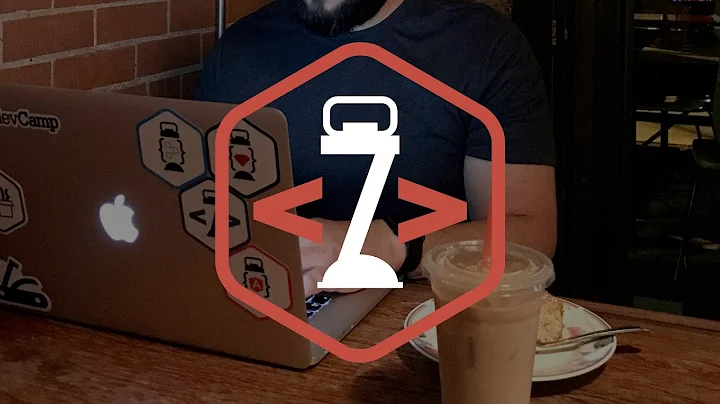How to URL encode a string in Ruby
Solution 1
str = "\x12\x34\x56\x78\x9a\xbc\xde\xf1\x23\x45\x67\x89\xab\xcd\xef\x12\x34\x56\x78\x9a".force_encoding('ASCII-8BIT')
puts CGI.escape str
=> "%124Vx%9A%BC%DE%F1%23Eg%89%AB%CD%EF%124Vx%9A"
Solution 2
Nowadays, you should use ERB::Util.url_encode or CGI.escape. The primary difference between them is their handling of spaces:
>> ERB::Util.url_encode("foo/bar? baz&")
=> "foo%2Fbar%3F%20baz%26"
>> CGI.escape("foo/bar? baz&")
=> "foo%2Fbar%3F+baz%26"
CGI.escape follows the CGI/HTML forms spec and gives you an application/x-www-form-urlencoded string, which requires spaces be escaped to +, whereas ERB::Util.url_encode follows RFC 3986, which requires them to be encoded as %20.
See "https://stackoverflow.com/questions/2824126/whats-the-difference-between-uri-escape-and-cgi-escape/13059657#13059657" for more discussion.
Solution 3
str = "\x12\x34\x56\x78\x9a\xbc\xde\xf1\x23\x45\x67\x89\xab\xcd\xef\x12\x34\x56\x78\x9a"
require 'cgi'
CGI.escape(str)
# => "%124Vx%9A%BC%DE%F1%23Eg%89%AB%CD%EF%124Vx%9A"
Taken from @J-Rou's comment
Solution 4
You can use Addressable::URI gem for that:
require 'addressable/uri'
string = '\x12\x34\x56\x78\x9a\xbc\xde\xf1\x23\x45\x67\x89\xab\xcd\xef\x12\x34\x56\x78\x9a'
Addressable::URI.encode_component(string, Addressable::URI::CharacterClasses::QUERY)
# "%5Cx12%5Cx34%5Cx56%5Cx78%5Cx9a%5Cxbc%5Cxde%5Cxf1%5Cx23%5Cx45%5Cx67%5Cx89%5Cxab%5Cxcd%5Cxef%5Cx12%5Cx34%5Cx56%5Cx78%5Cx9a"
It uses more modern format, than CGI.escape, for example, it properly encodes space as %20 and not as + sign, you can read more in "The application/x-www-form-urlencoded type" on Wikipedia.
2.1.2 :008 > CGI.escape('Hello, this is me')
=> "Hello%2C+this+is+me"
2.1.2 :009 > Addressable::URI.encode_component('Hello, this is me', Addressable::URI::CharacterClasses::QUERY)
=> "Hello,%20this%20is%20me"
Solution 5
I was originally trying to escape special characters in a file name only, not on the path, from a full URL string.
ERB::Util.url_encode didn't work for my use:
helper.send(:url_encode, "http://example.com/?a=\11\15")
# => "http%3A%2F%2Fexample.com%2F%3Fa%3D%09%0D"
Based on two answers in "Why is URI.escape() marked as obsolete and where is this REGEXP::UNSAFE constant?", it looks like URI::RFC2396_Parser#escape is better than using URI::Escape#escape. However, they both are behaving the same to me:
URI.escape("http://example.com/?a=\11\15")
# => "http://example.com/?a=%09%0D"
URI::Parser.new.escape("http://example.com/?a=\11\15")
# => "http://example.com/?a=%09%0D"
Related videos on Youtube
HRÓÐÓLFR
Updated on April 26, 2020Comments
-
HRÓÐÓLFR about 4 years
How do I
URI::encodea string like:\x12\x34\x56\x78\x9a\xbc\xde\xf1\x23\x45\x67\x89\xab\xcd\xef\x12\x34\x56\x78\x9ato get it in a format like:
%124Vx%9A%BC%DE%F1%23Eg%89%AB%CD%EF%124Vx%9Aas per RFC 1738?
Here's what I tried:
irb(main):123:0> URI::encode "\x12\x34\x56\x78\x9a\xbc\xde\xf1\x23\x45\x67\x89\xab\xcd\xef\x12\x34\x56\x78\x9a" ArgumentError: invalid byte sequence in UTF-8 from /usr/local/lib/ruby/1.9.1/uri/common.rb:219:in `gsub' from /usr/local/lib/ruby/1.9.1/uri/common.rb:219:in `escape' from /usr/local/lib/ruby/1.9.1/uri/common.rb:505:in `escape' from (irb):123 from /usr/local/bin/irb:12:in `<main>'Also:
irb(main):126:0> CGI::escape "\x12\x34\x56\x78\x9a\xbc\xde\xf1\x23\x45\x67\x89\xab\xcd\xef\x12\x34\x56\x78\x9a" ArgumentError: invalid byte sequence in UTF-8 from /usr/local/lib/ruby/1.9.1/cgi/util.rb:7:in `gsub' from /usr/local/lib/ruby/1.9.1/cgi/util.rb:7:in `escape' from (irb):126 from /usr/local/bin/irb:12:in `<main>'I looked all about the internet and haven't found a way to do this, although I am almost positive that the other day I did this without any trouble at all.
-
apneadiving almost 13 yearsMaybe useful if using Ruby 1.9: yehudakatz.com/2010/05/05/…
-
-
 mu is too short almost 13 years
mu is too short almost 13 yearsforce_encoding('binary')might be a more self-documenting choice. -
J-Rou almost 12 yearsThey deprecated that method, use *
CGI.escape* instead. -> http://www.ruby-forum.com/topic/207489#903709. You should also be able to useURI.www_form_encode*URI.www_form_encode_component*, but I have never used those -
pje over 10 yearsNo need to
require 'open-uri'here. Did you meanrequire 'uri'? -
Alexander.Iljushkin over 8 years@J-Rou, CGI.escape can escape whole URL, it does not selectively escapes query parameters, for instance, if you pass
'a=&!@&b=&$^'to CGI.escape it will escape whole thing with query separators&so this could be used only to query values. I suggest usingaddressablegem , it is more intellectual working with urls. -
 Raccoon over 5 yearsAlso can do like this:
Raccoon over 5 yearsAlso can do like this:CGI.escape('Hello, this is me').gsub("+", "%20")=> Hello%2C%20this%20is%20me"if don't want to use any gems -
 Tashows about 5 yearsI needed to access files on remote server. Encoding with CGI didn't work, but URI.encode did the work just fine.
Tashows about 5 yearsI needed to access files on remote server. Encoding with CGI didn't work, but URI.encode did the work just fine. -
 cesartalves almost 4 yearsIf the receiving server is old, it might not respond well to CGI.escape. This is still a valid alternative.
cesartalves almost 4 yearsIf the receiving server is old, it might not respond well to CGI.escape. This is still a valid alternative. -
akostadinov about 3 yearsThe only actual answer that I could find. Thank you.
-
 Russell Fulton about 3 yearsThis whole issue is a mess! Thanks for shedding some real light on it. I wasted at least a day chasing my tail before finding this!
Russell Fulton about 3 yearsThis whole issue is a mess! Thanks for shedding some real light on it. I wasted at least a day chasing my tail before finding this!


![HOW TO ADD SEO FRIENDLY URLS IN RUBY ON RAILS 6 [TUTORIAL]](https://i.ytimg.com/vi/qMEasG8-Tvo/hq720.jpg?sqp=-oaymwEcCNAFEJQDSFXyq4qpAw4IARUAAIhCGAFwAcABBg==&rs=AOn4CLAwT16wANz2_t9ofRGvUeD6F2OMwA)





